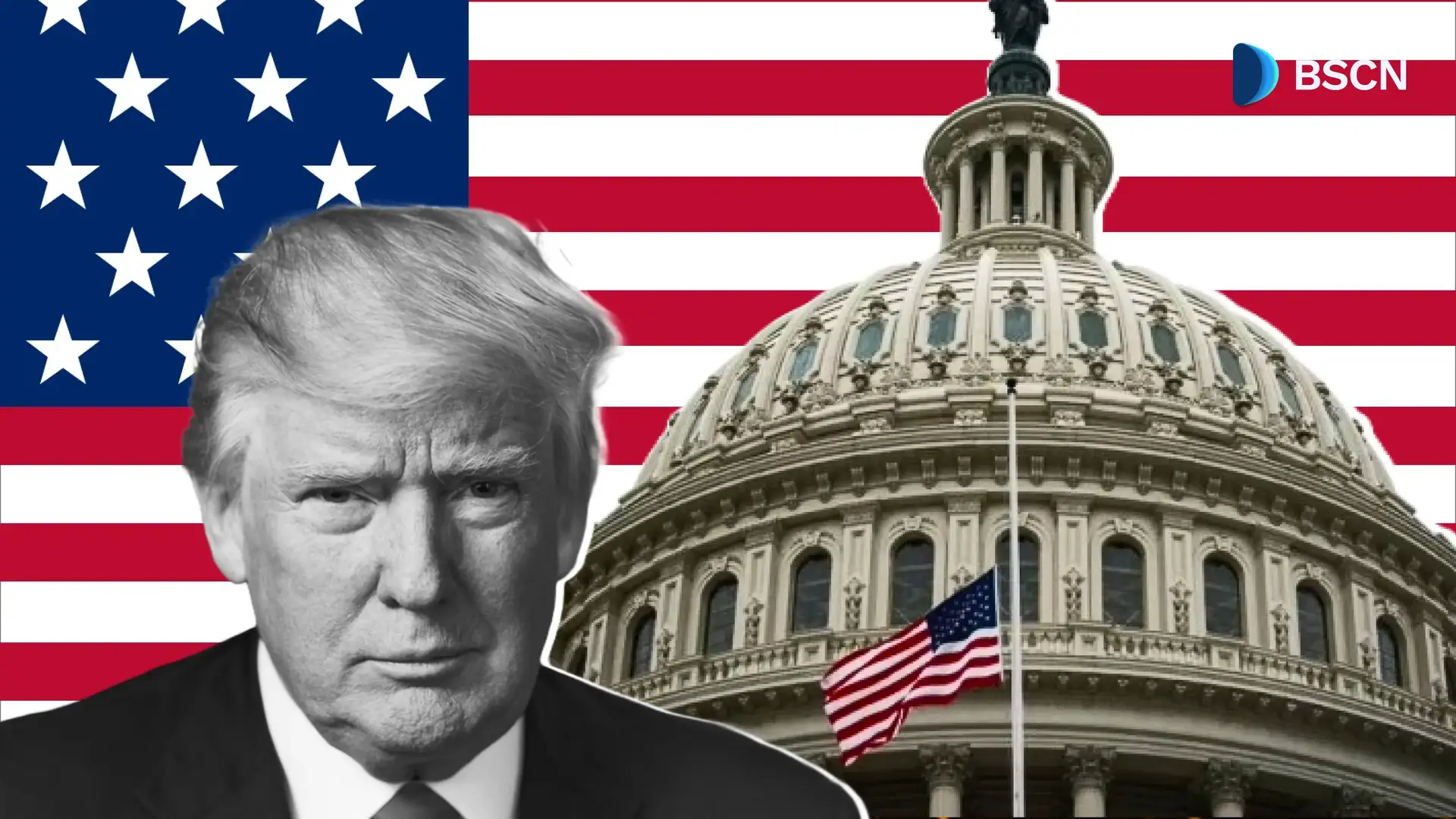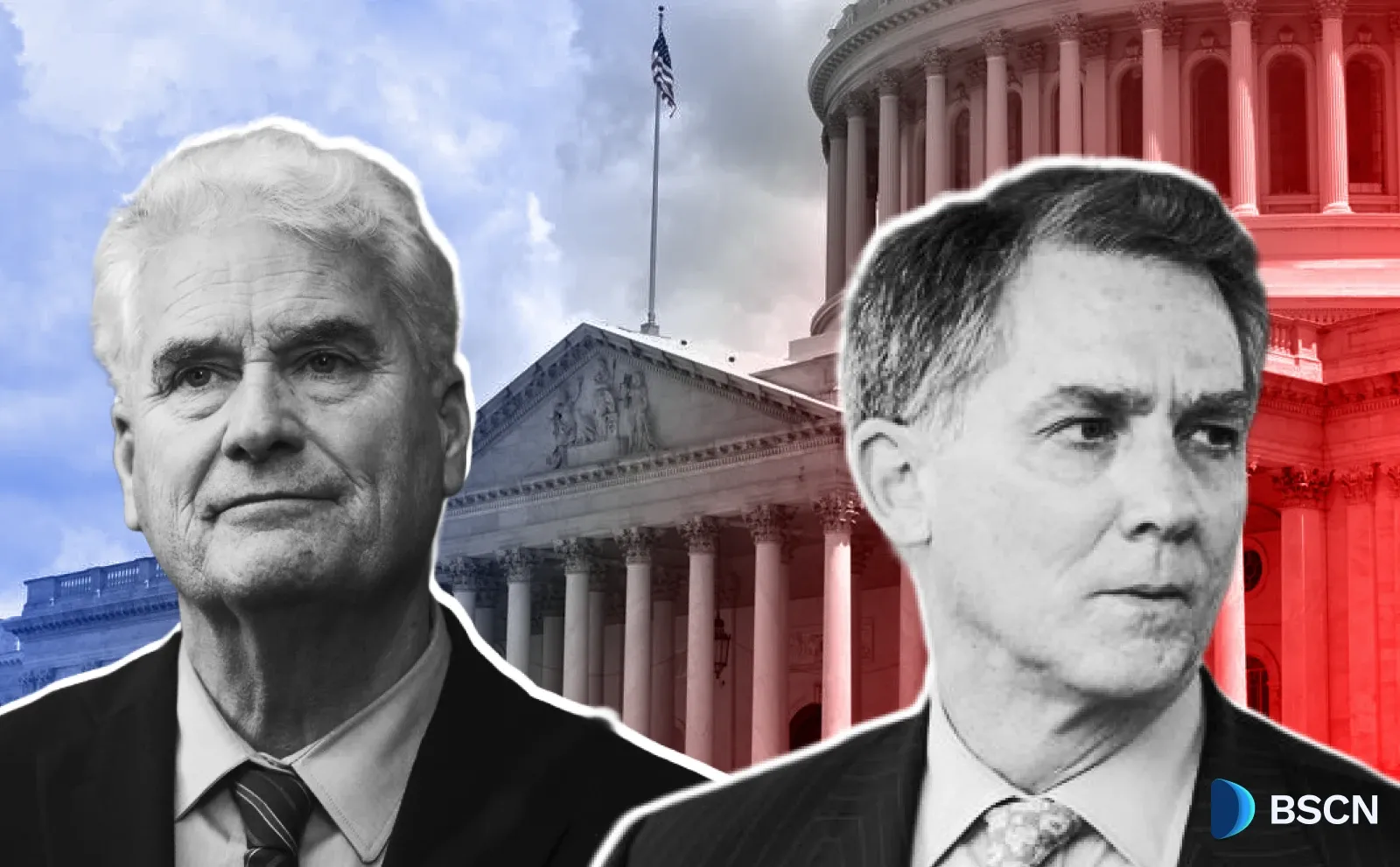US House Passes Landmark Crypto Bills: Details

Supporters say the bills provide much-needed clarity and prevent overreach. Critics warn they could weaken investor protections and financial oversight.
Soumen Datta
July 18, 2025
Table of Contents
The U.S. House of Representatives passed three critical bills aiming to define and regulate the digital asset space. These include the Digital Asset Market Clarity Act, the GENIUS Act, and the Anti‑CBDC Surveillance State Act.
Lawmakers cast votes on Thursday with significant bipartisan support, setting the stage for new rules governing cryptocurrencies in the United States.
Clarity Act Defines the Rules of Engagement
With a 294–134 vote, the Clarity Act establishes itself as a sweeping framework for the crypto industry. It clarifies which federal agency controls which tokens—reclassifying mature, decentralized blockchains like Bitcoin as commodities under the Commodity Futures Trading Commission (CFTC), while tasking the SEC with oversight of tokenized securities.
Importantly, the bill mandates retail disclosures, requires firms to segregate customer and corporate funds, and aims to protect consumers while encouraging innovation. Ji Hun Kim, CEO of the Crypto Council for Innovation, called its passage a “milestone,” adding that it “replaces uncertainty with confidence” for consumers, startups, and investors alike.
GENIUS Act Turns Attention to Stablecoins
Crypto’s stablecoins—digital tokens pegged to fiat currency—received special attention. The GENIUS Act, already approved by the Senate, passed in the House by a vote of 308–122. It sets reserve requirements, demands annual audits for issuers over $50 billion in market cap, and imposes anti‑money laundering (AML) and sanctions compliance.
As Rep. French Hill stated, this bill aims to reinforce American competitiveness and consumer safety. Treasury Secretary Scott Bessent noted that a well‑regulated stablecoin market could grow to $3.7 trillion by 2030. Allies see it as essential for industry legitimacy and user protection.
Anti‑CBDC Act Bans Federal Digital Dollar
In a narrower 219–210 vote, the House approved the Anti‑Central Bank Digital Currency (CBDC) Surveillance State Act. It prohibits the Federal Reserve from issuing a digital dollar directly to Americans, preserving existing payment structures and privacy protections.
Opponents expressed concerns that CBDC rollout could threaten civil liberties. This bill is now expected to be folded into the National Defense Authorization Act, a must‑pass vehicle, effectively blocking a retail CBDC unless Congress explicitly allows it.
Political Context and Trump’s Crypto Drive
These measures arrive at a time of heightened political tension. Former President Donald Trump has branded the passage of these bills as part of his push to make the U.S. the global “crypto capital.” His public support helped break GOP deadlock on separate votes.
However, Democrats noted exemptions in accountability for Trump’s family crypto transactions despite a ban on congressional family lawmakers.
Crypto industry heavyweights contributed over $119 million in 2024 to support pro‑crypto legislators. Their advocacy has paid dividends: nearly all candidates backed by Fairshake PAC, for example, won their races.
Senate Next Steps and Prospects
With House approval in hand, the next hurdle is the Senate. The GENIUS Act is expected to head straight to the President’s desk. The Clarity and Anti‑CBDC bills, now in the Senate’s crosshairs, face a tighter road ahead.
Senate Republicans, led by Senators Lummis and Gillibrand, are working on a unified framework. The Senate Banking Committee has targeted a September 30 deadline to advance guidelines. Whether they depart from the House bills or blend elements remains uncertain—but all involved emphasize the need for swift action.
Concerns and Critiques
Despite broad support, criticism emerged from several angles:
- Some Democrats argue regulations remain too favorable to Trump’s crypto interests.
- The anti‑CBDC act is seen by critics as shortsighted; they argue digital currency could help emergency relief and financial inclusion.
- Maxine Waters raised questions about the bill’s focus on Trump’s ventures, accusing Republicans of enabling corruption.
Still, the crypto sector maintains that clear rules are essential to sustain growth and secure long‑term investment.
Rep. Bryan Steil, R‑Wis., noted the broad, bipartisan backing for the Clarity Act signals rising urgency in the crypto sector. Patrick McHenry, former House Financial Services Chair, called the move “a massive generational impact,” likening it to landmark 1930s securities laws. According to McHenry, these bills could solidify the U.S. as the global hub for digital finance.
What Comes Next for U.S. Crypto Regulation
Now that the GENIUS Act is ready for presidential approval, stablecoin regulation becomes official. Markets may react positively, interpreting this as a step toward legitimacy.
The Clarity Act and Anti‑CBDC bill, once merged into Senate discussions, could reshape regulatory oversight and innovation incentives. A Senate‑backed bill—if passed—would clarify how assets are regulated and prevent government overreach.
For now, the U.S. stands at a regulatory crossroads: balancing innovation, financial stability, civil liberties, and geopolitical competitiveness.
Why It Matters
- U.S. Leadership: These bills signal intent to make the U.S. a global crypto hub—balancing innovation with protection.
- Consumer Security: Plan includes reserve requirements, disclosure rules, and payment transparency.
- Institutional Trust: Clear regulation signals to Wall Street and institutions that digital assets are safe for business.
- Global Competitiveness: China, EU, and other nations are racing into tokenization and CBDC territory—these bills keep pace.
- Tech Acceleration: Clarity enables developers and startups to build without fear of retroactive enforcement.
The House’s passage of these crypto bills marks a transformative moment. The GENIUS Act and Clarity Act promise legal clarity on stablecoins and token classification. The Anti‑CBDC act locks in America’s current digital currency stance.
If the Senate advances them as expected, and the President signs into law, these frameworks will shape U.S. crypto policy for years—defining who governs, who controls, and who profits.
Read Next...
Disclaimer
Disclaimer: The views expressed in this article do not necessarily represent the views of BSCN. The information provided in this article is for educational and entertainment purposes only and should not be construed as investment advice, or advice of any kind. BSCN assumes no responsibility for any investment decisions made based on the information provided in this article. If you believe that the article should be amended, please reach out to the BSCN team by emailing [email protected].
Author
 Soumen Datta
Soumen DattaSoumen has been a crypto researcher since 2020 and holds a master’s in Physics. His writing and research has been published by publications such as CryptoSlate and DailyCoin, as well as BSCN. His areas of focus include Bitcoin, DeFi, and high-potential altcoins like Ethereum, Solana, XRP, and Chainlink. He combines analytical depth with journalistic clarity to deliver insights for both newcomers and seasoned crypto readers.
Crypto Project & Token Reviews
Project & Token Reviews
Comprehensive reviews of crypto's most interesting projects and assets
Learn about the hottest projects & tokens

















